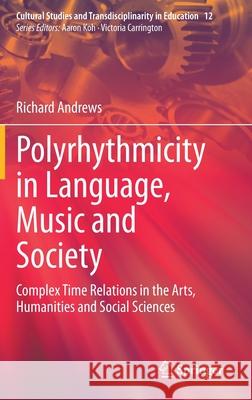Polyrhythmicity in Language, Music and Society: Complex Time Relations in the Arts, Humanities and Social Sciences » książka
topmenu
Polyrhythmicity in Language, Music and Society: Complex Time Relations in the Arts, Humanities and Social Sciences
ISBN-13: 9789811605659 / Angielski / Twarda / 2021 / 168 str.
Polyrhythmicity in Language, Music and Society: Complex Time Relations in the Arts, Humanities and Social Sciences
ISBN-13: 9789811605659 / Angielski / Twarda / 2021 / 168 str.
cena 403,47
(netto: 384,26 VAT: 5%)
Najniższa cena z 30 dni: 385,52
(netto: 384,26 VAT: 5%)
Najniższa cena z 30 dni: 385,52
Termin realizacji zamówienia:
ok. 16-18 dni roboczych.
ok. 16-18 dni roboczych.
Darmowa dostawa!
Kategorie:
Kategorie BISAC:
Wydawca:
Springer
Seria wydawnicza:
Język:
Angielski
ISBN-13:
9789811605659
Rok wydania:
2021
Wydanie:
2021
Numer serii:
000467127
Ilość stron:
168
Waga:
0.45 kg
Wymiary:
23.39 x 15.6 x 1.27
Oprawa:
Twarda
Wolumenów:
01
Dodatkowe informacje:
Wydanie ilustrowane











